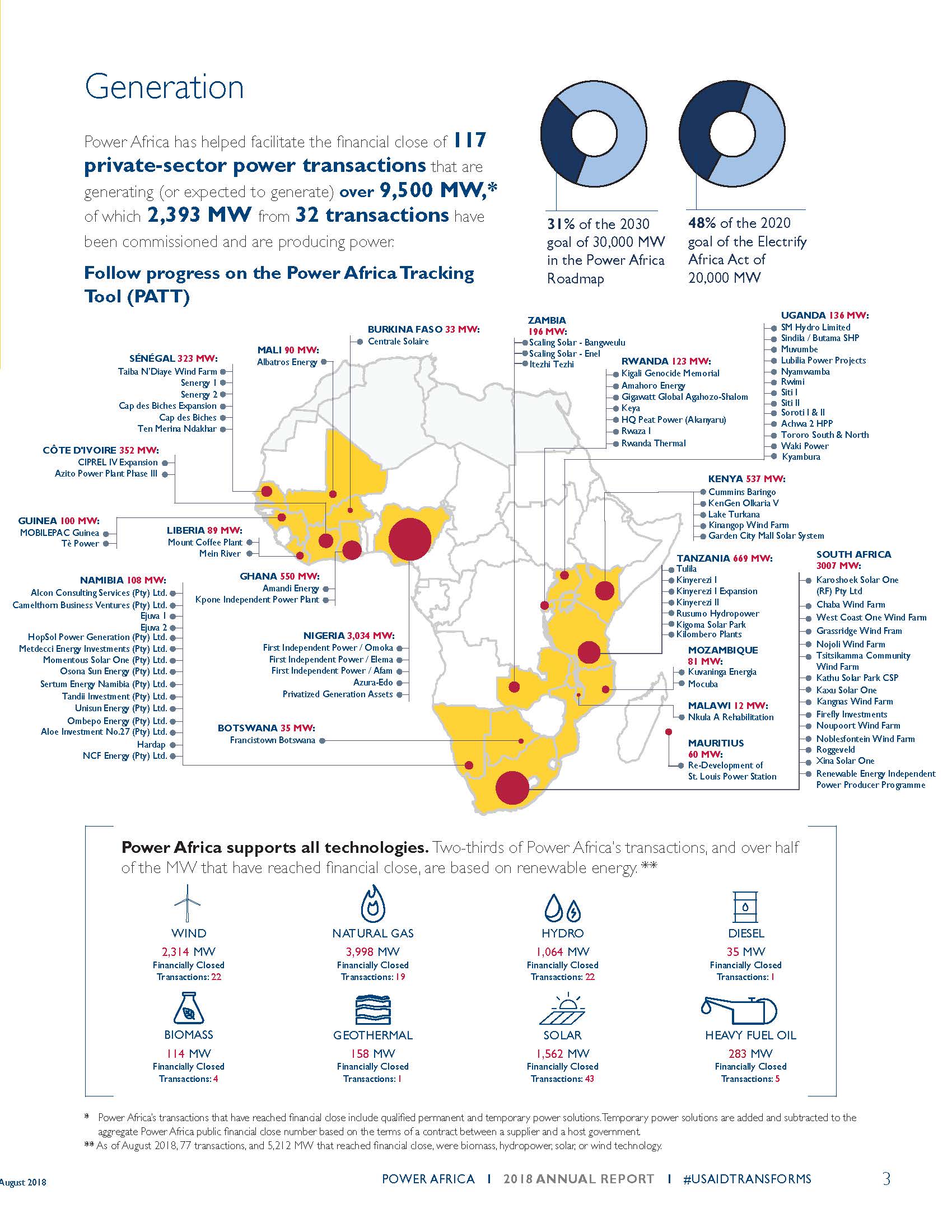Slow Burn for the Environment
"Two out of three people in Sub-Saharan Africa lack access to electricity," reports the U.S. Agency for International Development (USAID). To expand electricity access on the continent, USAID has been bringing private sector and government partners together to stimulate investment in infrastructure. Called, Power Africa, the initiative is generating (or is soon expected to generate) over 9,500 megawatts of new electricity. (See graphic at bottom.)
While the effort is laudable, the need remains immense.
Forests Become Fuel
The poor in southern Africa still rely on wood to meet their basic energy needs. The UN Food and Agricultural Organization reports that "woodfuel use accounts for 90 to 98 percent of residential energy consumption in most of Sub-Saharan Africa."
The burden for collecting fuelwood generally falls to women or girls, who may spend as much as 20 hours per week foraging, which reduces time available to attend school, generate income, or grow more food.
Reliance on wood as a fuel also causes deforestation, which is having significant climate impacts. Burning wood also causes respiratory and other health problems associated with high concentrations of smoke in indoor environments.
It is well known that forests are considered the best defense against global warming, and so immediate action is needed to reduce reliance on wood for fuel. To that end, Power Africa is pursuing smaller, off-the-grid solutions to provide power to rural areas, including introducing household solar power. In the meantime, quick and cost-effective ways to reduce fuelwood use now must be implemented in tandem with these efforts.
Slow Burn Mitigation Measure
One way that Planet Aid and its partners support projects that help individuals and communities in Africa reduce wood consumption is by facilitating the construction of simple, low-tech, kiln-like stoves made out of clay.
These "firewood-saving stoves," as they are called, operate at lower combustion levels and thereby modulate the amount of heat being delivered. They also create a large and stable cooking area allowing several pots to cook at once. The result is that a given quantity of wood can last much longer than if burned in the conventional way: on an open fire between cooking stones. One study found that wood-saving stoves can reduce consumption by up to one-third.
The stoves are a regular part of the Farmers' Club development model implemented by Humana People to People member organizations in many countries. They are simple to make and use, and some villagers have even become entrepreneurs to produce and sell the stoves for income.
In addition to the stoves, projects supported by Planet Aid are involved in helping communities plant trees for both reforestation and production of food. Read this success story from the Democratic Republic of the Congo.
The page below is excerpted from the Power Africa 2018 Annual Report. (click to enlarge)

